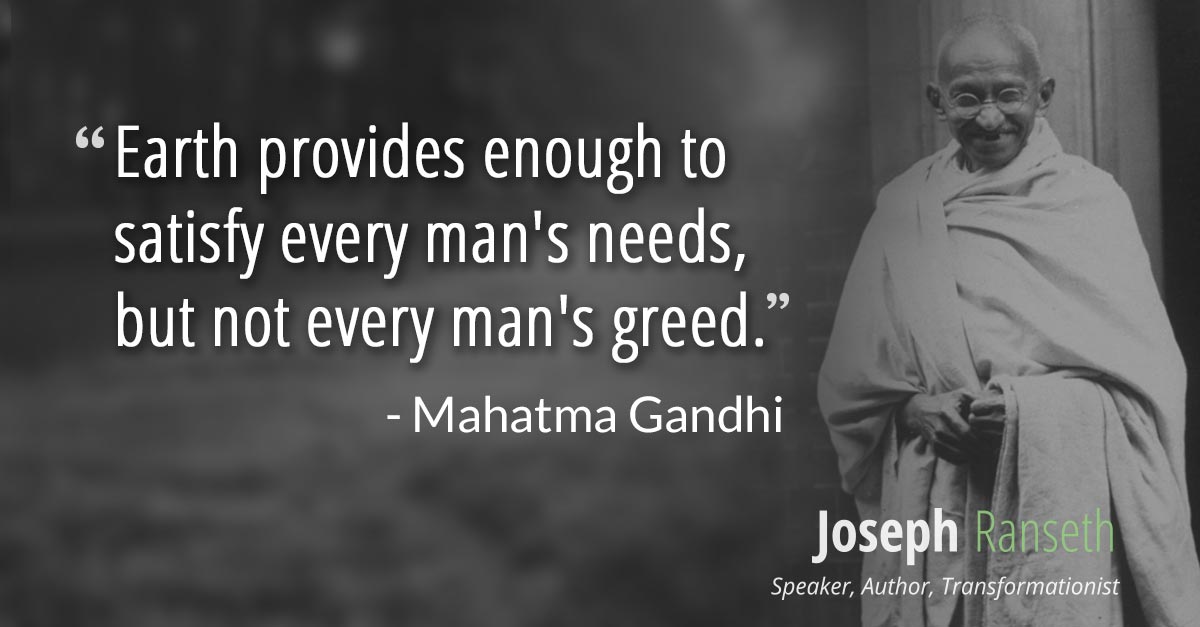How would your life change if you no longer had to work to earn a living and could spend your time pursuing passions and interests?
More importantly, how would the world need to change in order to make that possible?
Bucky Fuller was a was a 20th century inventor and visionary who did not limit himself to one field but worked as a ‘comprehensive anticipatory design scientist’ to solve global problems. Fuller’s ideas and work continue to influence new generations of designers, architects, scientists and artists working to create a sustainable planet.
This quote gives some serious food for thought:
“We should do away with the absolutely specious notion that everybody has to earn a living. It is a fact today that one in ten thousand of us can make a technological breakthrough capable of supporting all the rest. The youth of today are absolutely right in recognizing this nonsense of earning a living. We keep inventing jobs because of this false idea that everybody has to be employed at some kind of drudgery because, according to Malthusian Darwinian theory he must justify his right to exist. So we have inspectors of inspectors and people making instruments for inspectors to inspect inspectors. The true business of people should be to go back to school and think about whatever it was they were thinking about before somebody came along and told them they had to earn a living.” ― Richard Buckminster Fuller

The technology certainly exists to provide for everyone’s needs. But, because of a mindset that has each looking out for their own good more than the good of others, the technology serves more to feed individual greed.
But does this have to be the case?
What if you lived in a world, or just a community, that was committed to seeing you live what you define on your own terms as your best life, and places your success as equal priority to everyone else’s?
A Community Model for Happiness?
A world like this would require a different model than the one we operate right now. But, it isn’t out of reach. It’s happening around us right now.
The recent documentary Happy includes a segment on intentional communities, and how they are a sustainable model for supporting happiness. It challenges the entire assumption that the house with a picket fence and two cars in the garage is – or should be – the standard arrangement for families.
New to the idea of intentional communities? Simply defined, an intentional community is:
a group of people who have chosen to live together with a common purpose, working cooperatively to create a lifestyle that reflects their shared core values. The people may live together on a piece of rural land, in a suburban home, or in an urban neighborhood, and they may share a single residence or live in a cluster of dwellings.
Now that’s a beautiful and simple idea, but what does that mean for us practically? Consider:
- If you and just 2 or 3 families – instead of living in 2 or 3 homes – shared one home large enough that everyone could still have their own private space… Your housing costs would drop significantly.
- If 6 people shared 3 cars between them… Your transportation costs would drop significantly. And maybe instead of driving every day you could be a passenger, freeing up time to learn a new skill or just form deeper connections with those in your carpool.
- If everyone took turns making meals, you’d only cook one day a week instead of every day. How much time would you free up? (And how much more would you enjoy your food?!)
- If your costs dropped significantly, you could choose a job that you loved, instead of the one that paid you the most.
- Or… If you had a lower cost of living, maybe you could work part-time, or even casually. What would you do with your free time?
With the decrease of financial obligations, and an increase of time, you become free to explore hobbies, learn new things, develop new skills, or be involved in worthy causes that make our communities and world a better place.
Even further, a shared lifestyle has far less of an impact on the planet in terms of waste, carbon footprint, etc. If it were practiced on a large scale, we’d not only help the planet, but build physically and socially sustainable communities that could prosper indefinitely.

Utopian Dreaming, or is this Really Practical?
Let me be clear. I’m not talking about a government-based system of communism or socialism. I’m talking about genuine communities that voluntarily come together with these common values and vision to do something meaningful.
Sound out of reach? It’s not.
Thankfully, we don’t have to figure it all out ourselves. There are countless intentional communities operating today that give us a model to follow. One of the first I found in my journey of discovering more was Dancing Rabbit, an intentional community of about 70 people on 280 acres in Missouri.
Check them out:
Do I think you should join me in living in an intentional community? Yes.
Do I think everyone will jump on board right away? No.
Changing from our current model to that of more intentional communities is a huge paradigm shift,. I think it’s an ideal we should work toward, but ever the pragmatist, I think there are things we can do right now to slowly move us all closer to the ideals our planet needs.
Some action you could take today:
- Stop buying new. Do you really need that new car? New clothes? New device? My wife and I both drove cars that were 10 years old and paid off. (Now we choose to just keep one car between us.) My daily wardrobe is a pair of jeans and either a black or white t-shirt. (Yes, I pretty much wear the same thing every single day.) These are simple decisions that have a huge impact, not only on your bank account, and the environment, but also on your sense of self. When you are no longer identified by your “stuff” or outward “successes” you have to dig a bit deeper and find something more meaningful… It’s worth it.
- Start building community. Community isn’t neighbourhood, it’s more. It’s the circle of people who lean on, interact with and support on the regular. It could be as simple as knocking on the neighbour’s door to borrow a cup of sugar (remember when that was a regular occurrence?) instead of making a quick drive to the store to get it. It could be as simple as catching a ride with a friend, or posting an ad for a carpool, instead of driving solo. Whatever it is, if it strengthens relationships and builds interdependence, it’s a community-building effort. Do it.
- Find more meaning. Take a day off now and then, or even just a few hours, to do something that inspires you. If you do things that get you in touch with your passions and purpose – or simply just wake you up to new things that you enjoy – you’ll want to do more of that, and that will be a catalyst for taking bigger steps to move away from the unsustainable model of working for decades in a career that takes us away from our families to pay for the homes and toys our families need to make up for the fact that they don’t see us enough.
You have something powerful to offer this planet. It’s your responsibility to do what you can to make sure that gift is shared, and not squandered away behind a job you don’t like – and most likely don’t need.
And, once you’ve started on the way, you’ll find that you’ll inspire others to do the same.

0 Comments